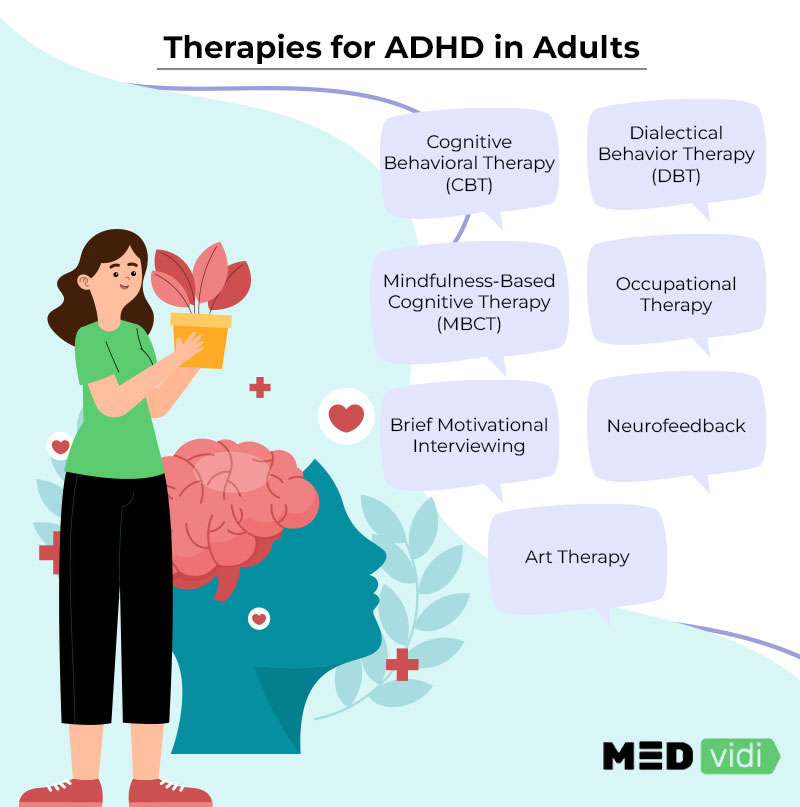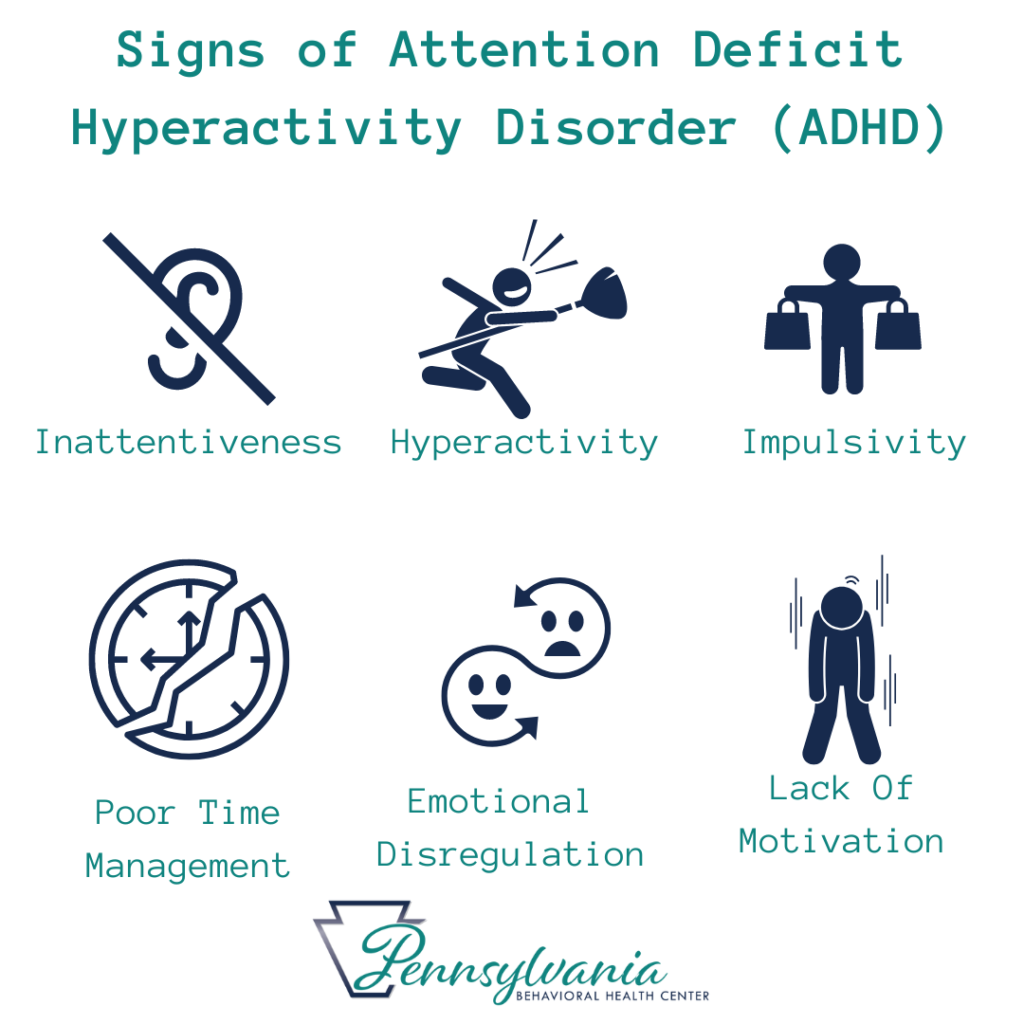Specialized ADHD Treatment for Personalized Care
Specialized ADHD Treatment for Personalized Care
Blog Article
Checking Out Effective ADHD Therapy Options for All Ages
The intricacies of Focus Deficit Attention Deficit Disorder Condition (ADHD) present one-of-a-kind difficulties across various age groups, demanding a detailed exploration of efficient treatment choices. A combination of behavior modifications, medicinal interventions, and way of life modifications has actually shown pledge in addressing the varied needs of people with ADHD. However, the effectiveness of these approaches can vary significantly based on individual situations, elevating crucial inquiries about tailored approaches. As we analyze the range of therapy modalities offered, it comes to be essential to think about not just their prompt impacts but likewise their lasting effects for individuals and families.
Understanding ADHD and Its Impact
Attention-Deficit/Hyperactivity Disorder (ADHD) is a neurodevelopmental condition characterized by relentless patterns of negligence, attention deficit disorder, and impulsivity that can dramatically influence different elements of an individual's life. It generally manifests in childhood, although symptoms can linger right into their adult years. The core signs of ADHD can interrupt educational efficiency, prevent social communications, and complicate occupational undertakings.
Individuals with ADHD usually fight with maintaining focus on jobs, arranging tasks, and following up on instructions, which can bring about scholastic underachievement (Depression Treatment). In social contexts, impulsivity may cause problems in forming and maintaining connections, as individuals might interrupt conversations or make rash decisions without taking into consideration repercussions
The irregularity in signs and symptom presentation means that ADHD can affect individuals in a different way, requiring a tailored strategy to monitoring. Comprehensive awareness of ADHD's nature and implications lays the groundwork for exploring suitable treatment options tailored to each individual's needs.
Behavioral Therapies for ADHD
Numerous behavioral treatments have actually been created to properly resolve the obstacles linked with ADHD, concentrating on changing details actions and promoting necessary abilities. Among the most recognized approaches are cognitive-behavioral treatment (CBT), moms and dad training, and social abilities training.
CBT aids people determine and change negative idea patterns and actions, promoting a more favorable expectation and enhanced self-regulation. This therapy frequently includes useful techniques for managing impulsivity and boosting company. Parent training programs empower caretakers by furnishing them with techniques to enhance favorable behaviors and established constant boundaries, which can be specifically helpful for kids with ADHD.
Social abilities training is an additional important part, mentor individuals with ADHD just how to communicate effectively with peers - Depression Treatment. This technique typically involves role-playing and comments to enhance interaction, cooperation, and conflict resolution abilities
Integrating these behavior modifications into a thorough treatment strategy can considerably boost working and top quality of life for individuals with ADHD. Inevitably, the effectiveness of these treatments depends on tailored strategies that think about the one-of-a-kind requirements of everyone, thereby promoting strength and adaptability in day-to-day life.
Medication Options Available
For numerous people with ADHD, medication can play a considerable duty in managing symptoms and improving total functioning. Both key groups of medications recommended for ADHD are energizers and non-stimulants.
Energizers, such as methylphenidate and amphetamine-based medications, are the most frequently made use of treatments. These drugs work by boosting the degrees of natural chemicals, particularly dopamine and norepinephrine, in the brain, which assists enhance focus and lower impulsivity and hyperactivity. They typically generate quick outcomes, making them a recommended alternative for many patients.

It is crucial for healthcare suppliers to conduct an extensive analysis to determine the most proper drug based upon individual requirements, case history, and possible negative effects. Routine follow-up and surveillance are additionally essential to make sure the efficiency of the picked therapy and to make any kind of necessary adjustments.
Way Of Life Modifications to Think About
Handling ADHD properly expands past drug, as way of living adjustments can significantly enhance overall well-being and symptom control. Incorporating organized regimens is crucial; regular schedules help people with ADHD manage their time properly and reduce feelings of bewilder.
Routine physical task is an additional crucial element. Exercise not only helps to boost focus however likewise increases mood and reduces stress degrees. Tasks such as yoga or team sporting activities can be specifically helpful, advertising both fitness and social communication.
Nourishment also plays an essential role. Depression Treatment. A balanced diet regimen rich in omega-3 fats, whole grains, and lean proteins can add to enhanced focus and cognitive feature. Restricting sugar and processed foods is suggested, as these can aggravate hyperactivity and impulsivity
Sleep health is essential for taking care of ADHD symptoms. Developing a regular rest timetable and producing a relaxed atmosphere can boost sleep high quality, leading to much better focus and emotional guideline.
Alternative and Alternative Strategies
Alternative and alternative strategies to ADHD treatment use a diverse variety of alternatives that complement conventional approaches. These strategies typically concentrate on lifestyle adjustments, nutritional treatments, and healing practices that aim to improve total health while dealing with ADHD signs.

Mindfulness and behavior treatments are also getting traction as alternative treatments. Practices such as yoga exercise, meditation, and cognitive-behavioral therapy can grow self-regulation and boost attention. These techniques sustain emotional resilience, which is especially beneficial for individuals with ADHD.
Natural supplements, such as ginkgo biloba and ginseng, are occasionally explored; nevertheless, it is vital to consult health care experts prior to including these right into treatment plans. While option and alternative strategies can provide valuable support, they ought to ideally be utilized combined with evidence-based therapies to attain optimum results for managing ADHD across all ages.
Conclusion
In summary, reliable ADHD treatment necessitates a detailed strategy that consists Therapist for ADHD of behavioral treatments, medication, lifestyle adjustments, and alternative methods. This complex approach emphasizes the value of personalized treatment in attending to the diverse needs of individuals with ADHD throughout all age teams.
Report this page